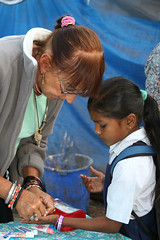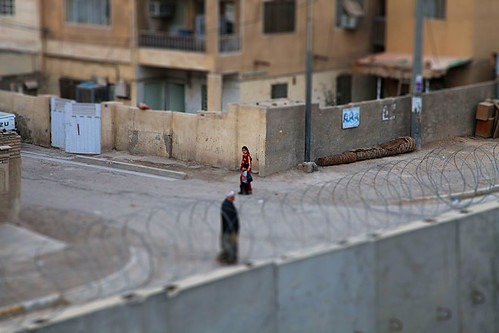I have been reading your blog for some time. I was particularly struck by your entry on founding NGOs. While in the context you are speaking I completely agree with you, I am curious about your opinion on something:
I am part of a (very) small NGO whose mandate is to help a small village in rural Bolivia. We have one partner in the village and several of us volunteering in the evenings/weekends to raise money in order to fund income generating projects in the village. Our ultimate goal is to develop these projects until they are capable of sustaining themselves as well as a small school that has been built in the village, at which point we would like to walk away. I am curious whether this type of operation even falls under the term NGO as you are using it, and what the feeling of the development world is with regards to these small operations? Does your opinion stand that we would be better off contributing our resources to a larger organization (even though our overhead is approximately zero)?
Thanks,
PB
Dear PB,
I can’t really answer your question without knowing more about your organization. I think, though, there are questions you can think about to decide for yourself:
• Do you have a clear idea of how you’ll measure success, or are you just assuming something good will result from your project?
• Do you have an identified funding source that does not involve applying for grants?
• Are you deeply familiar with the village you work in, and the theory and practice of the work you are doing? And I would not call one or two visits deeply familiar with a place.
• Is there no existing NGO who could do the same work in the same place? If you can commit to ongoing funding, even huge organizations can be willing to run little projects. You can actually go to Save the Children or Mercy Corps and say “I have $20,000 a year, can you support this specific school/clinic/agriculture center for that amount?” They may not be able to, but they will listen, especially if you want to work somewhere that doesn’t get much attention or funding.
• Are you starting a new organization because of ego? Do you think it will be cool/exciting/glamorous/make your mother proud to be head of an NGO? Do you actually know enough to do this well or are you just convinced in your heart you’ll do a better job because you are special?
If you feel comfortable with the answers to these questions, you can be pretty sure that your organization is value-added and not just noise.
You’ll notice that there is nothing in there about overhead. People have a problem with overhead costs because they feel that it makes money donated have less impact. But inexperience and mistakes also erode a program’s effectiveness. A skilled organization that spends 15% of the money it raises on accounting, budget transparency, and experienced headquarters oversight may well have just as much impact for every donor dollar as a no-overhead group who ends up doing training that has no impact on actual behavior, or buying supplies that are wrong for the situation.
Best,
Alanna
****
(photo credit: Alexander Drachmann)
Chosen because I loved the muted colors and the weathered look of the ground and the cement.







